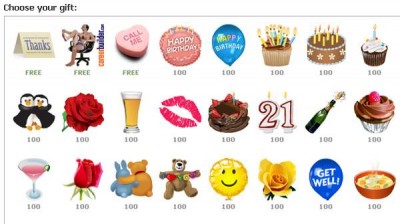There may be few things more annoying than reading the results of yet another study in the press. The only thing more dispiriting, I guess, would be one more self-serving article about Twitter. Enough already!
Yet here’s one that dares to be exponentially more pretentious by being both at once. Don’t worry. I’ll boil it down to the essential fact: HarvardBusiness.org reports that on Twitter, only 10% of its users account for 90% of the activity. That means only a few people are saying much at all, and everyone else is just watching.
It only confirms my big theory about social networking. Participation, in social networking terms, is not about what people put into the system. It’s measured by what people take out of it. Here we have the statistical proof that people are indeed sponging up the benefits of these new systems. We’re created a kingdom of lurkers.
I am one of them. Facebook has given me a new way to connect with the people from my past. Its gift to me is passive affection.
Like passive aggression, passive affection lets me share an emotion without actually showing it. I can simply imply it by being your Facebook friend. Using Facebook, I can keep all my old friends and semi-acquaintances in a basket, pleasantly at arm’s length, and I need only pluck one out for closer inspection when I feel moved to do so. They don’t need to know about it when I’ve checked in on them. To use Twitter parlance, I follow them, meaning I stay out of their way.
I have a college friend named Millicent. (OK, you got me. That’s not her real name.) I have always adored Millicent, but I’m not in great touch with her. In fact, if I were to pick up the phone and call her, the conversation would probably be a little awkward. She’d probably wonder what I wanted all of a sudden, and neither of us would be exactly sure of the proper time to politely end it. That doesn’t mean I don’t care about Millicent and don’t want to keep up with her; it just means that she’s not reach-out-and-touch-someone close anymore.
But because I can read her status updates on Facebook, I still know the big stuff that’s happening in her life. I feel closer to her than ever. I love her new haircut, and I’m moderately pleased her kid has graduated from her car seat (and, better yet, I don’t have to feign rapt interest if she told me about it for 10 minutes in person). Yet Millicent doesn’t even know I’ve got my eye on her. That’s passive affection.
A normal person, meaning one living in 2004, might have spent a lot of money calling all the people he liked. That throwback might also have invested lots of time writing e-mails to fondly remembered acquaintances that, although appreciated on the receiving end, might accidentally have gone unanswered for months. Rather than putting any of my old friends in such an odd position, and risking the chance of being inadvertently insulted by a non-answer, I turn to Facebook. It’s a little like stalking, except my friends have generously planted the bushes for me to hide in.
In 2004, to register my affection with the constellation of people in my life, I had to spend money on cards, gifts, and phone calls.
But now, it’s considered socially acceptable to simply honor personal milestones by pig-piling quick greetings on a Wall. A little tweet or a comment is all it takes to let people know I’m thinking about them, so there’s no need to interrupt their dinner hour for a 20-minute phone call. The effect is the same.
Social networking allows me to observe from afar with a sort of benign regard. I imagine it’s a little like God must feel: brimming with symbolic detachment.
So thank you, Facebook, for being mainstream enough for even former teachers and elderly relatives to understand.
You permit me to take a step back from the people I secretly love but that I’m afraid to tell. You have allowed me to set up camp in the demilitarized zone between weirdly officious inquiries and abject indifference. You have enabled a WASPish disconnect.



Preach
I have demonstrated quasi-passive affection for you by re-posting your blog on my page. I even wrote a comment…how’s that for activity?